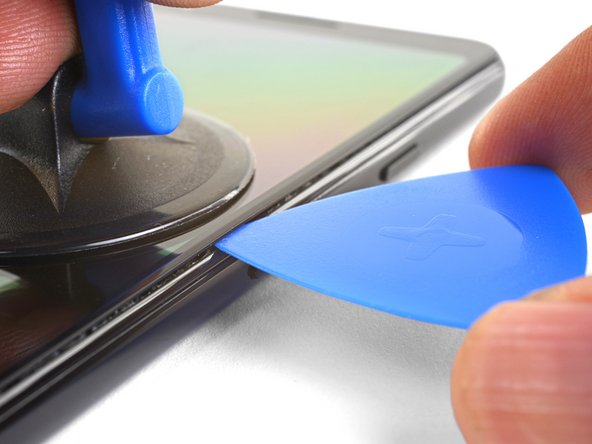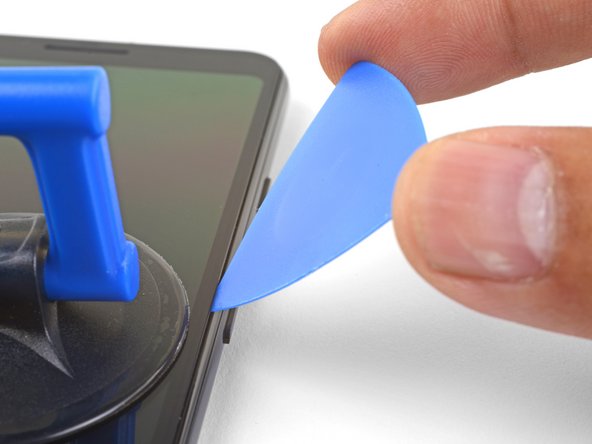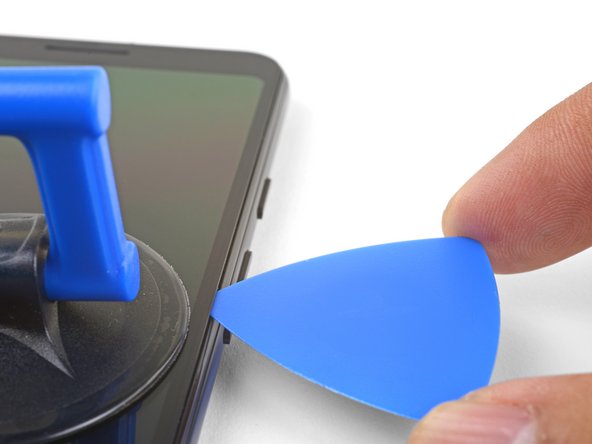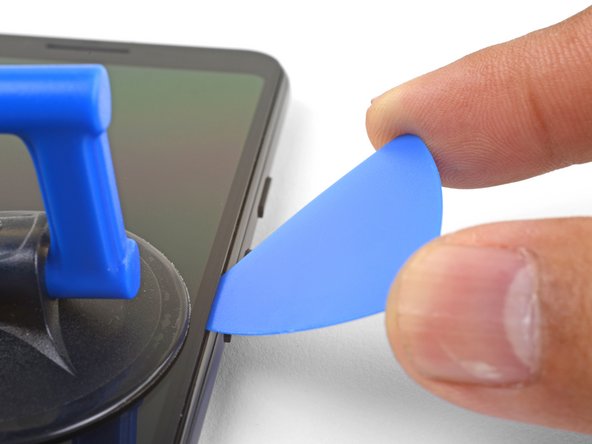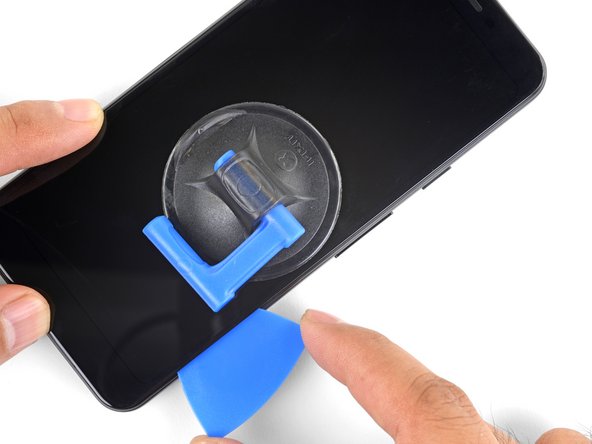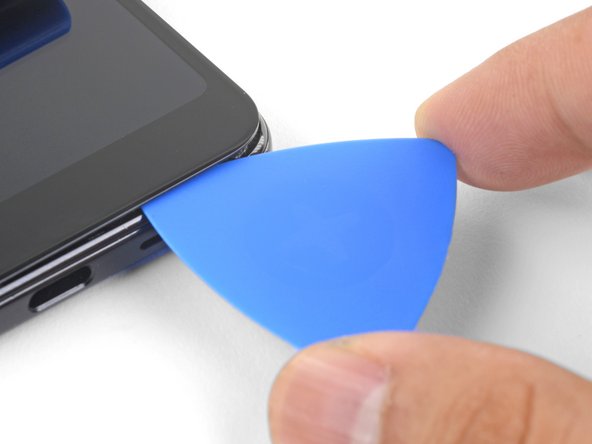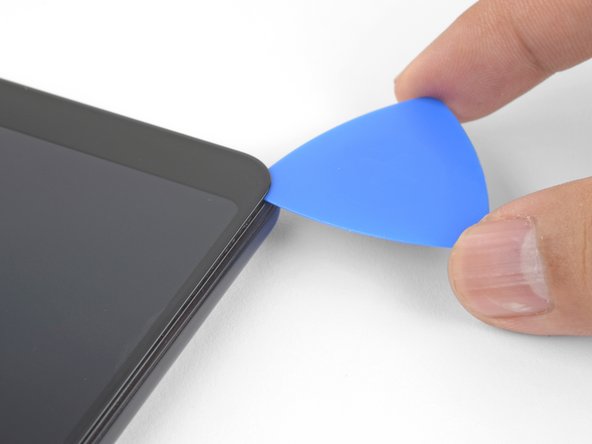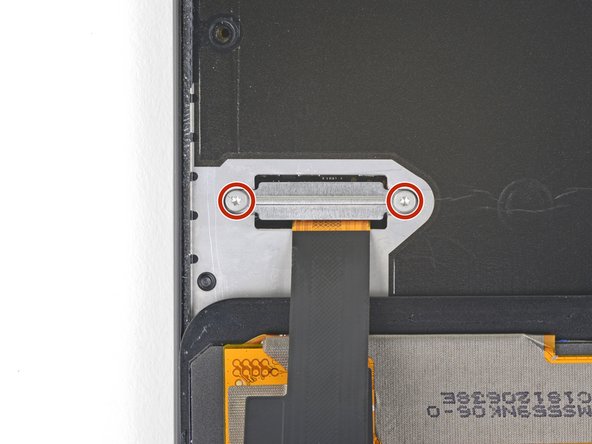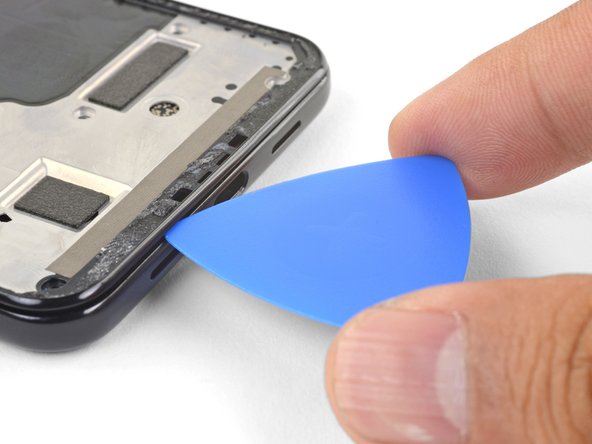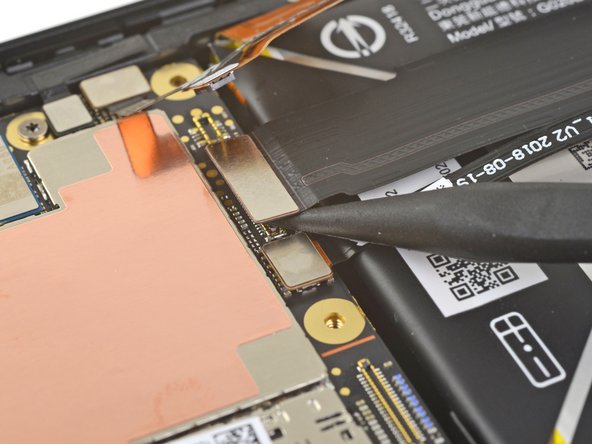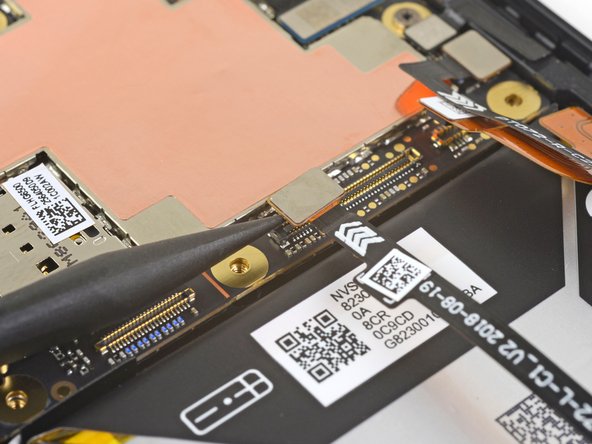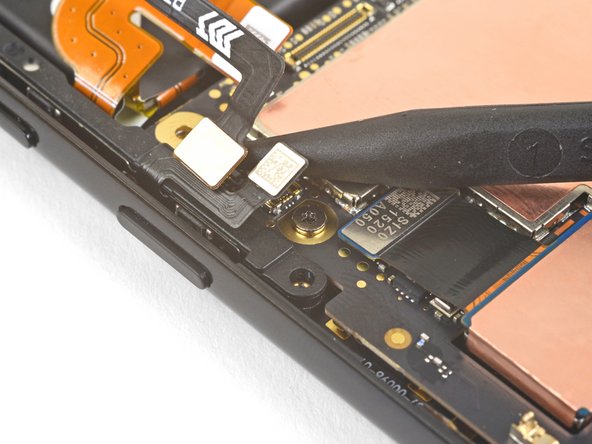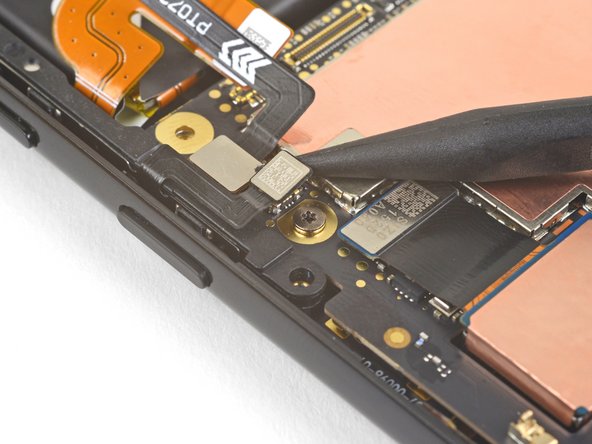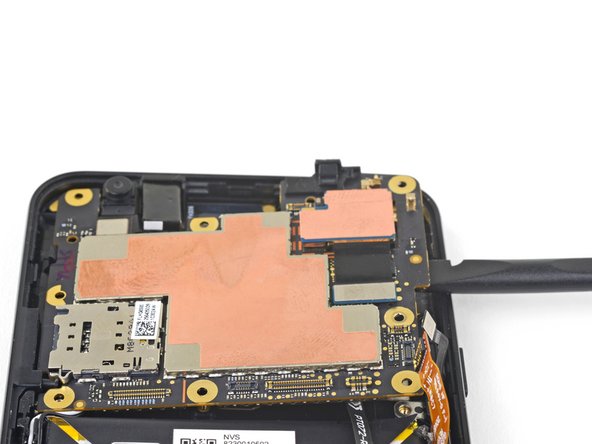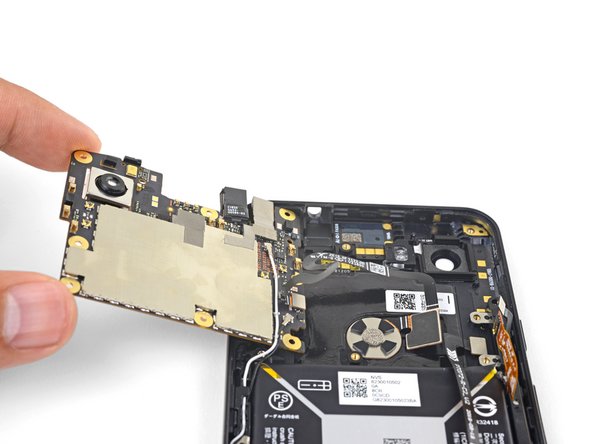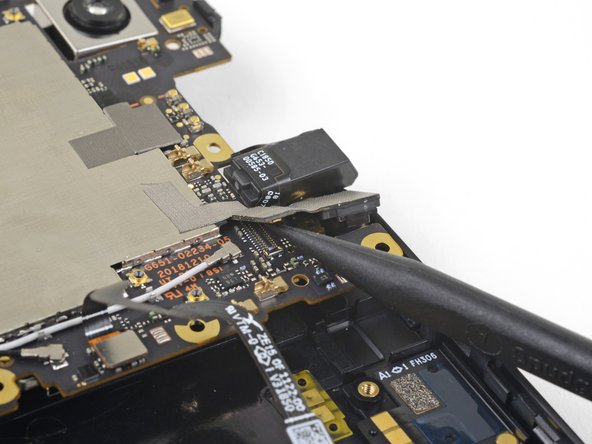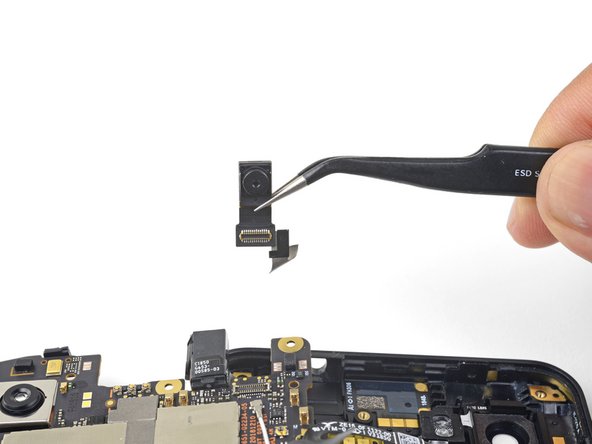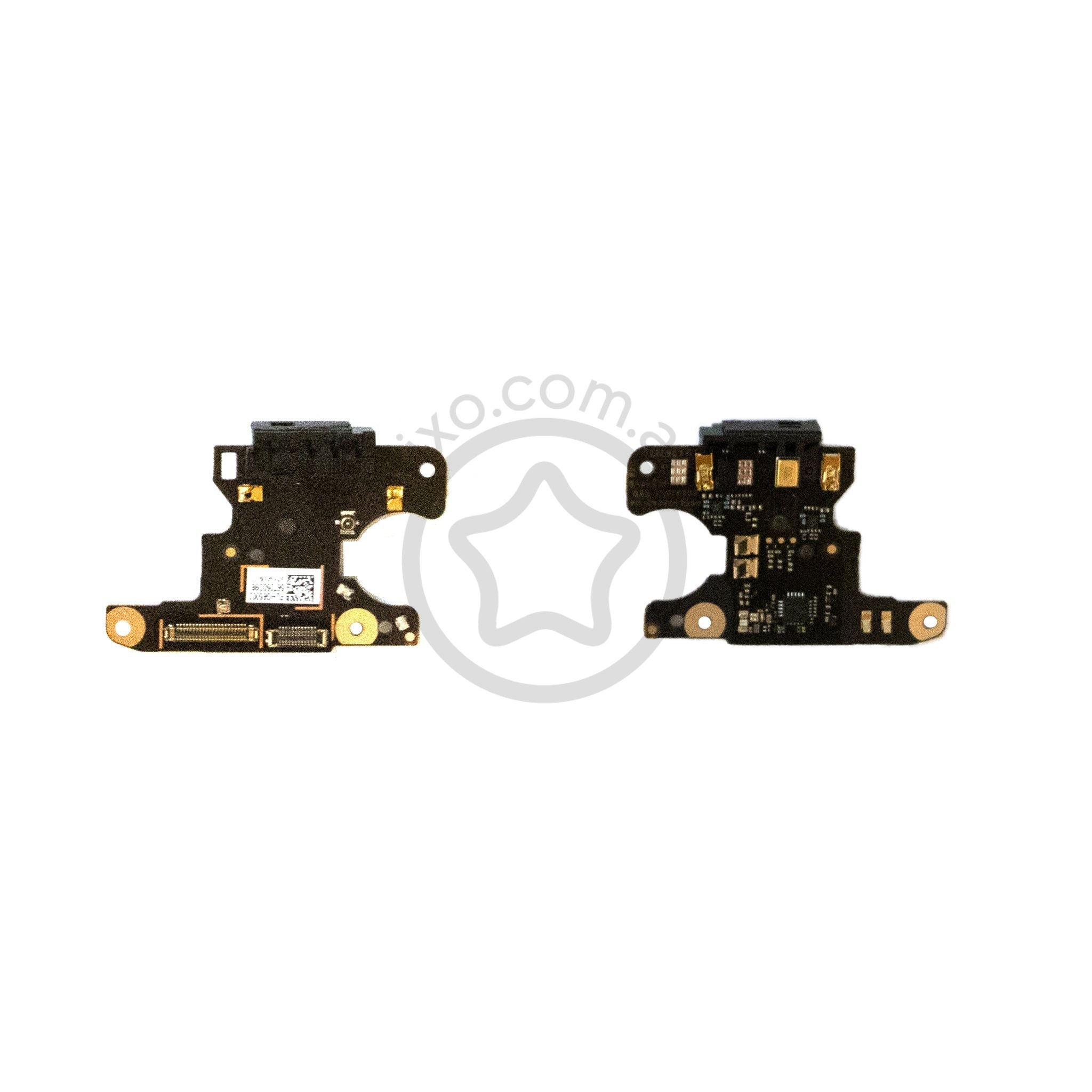DIY Guide: How to Replace Google Pixel 3a Front Camera
Duration: 45 minutes
Steps: 27 Steps
Hey there! This handy repair guide comes from the awesome folks at Salvation Repair and isn’t officially backed by Google. Curious about our other guides? Check them out!
Just a heads up: the Pixel 3a’s display panel is a bit on the delicate side, so handle with care!
The Salvation Repair team put together this guide to help you replace the front-facing selfie camera on your Pixel 3a. Since the camera is connected to the underside of the motherboard, you’ll need to remove the motherboard to get to it. Be careful when handling the display panel, as it’s fragile and doesn’t have any extra reinforcement. If you’re planning to reuse the screen, make sure to follow the warnings in the opening procedure carefully. The trickiest part of the process is reconnecting the proximity sensor connector, but with a little patience and finesse, you’ll be done in no time. If you need help or want some extra guidance, you can always schedule a repair.
Step 1
– Time to get started – insert a SIM eject tool, SIM eject bit, or even a trusty paper clip into the SIM tray hole. It’s easier than you think!
– Gently press to eject the tray. If you need help, you can always schedule a repair
Step 2
– Let’s get started by checking out the two seams on your phone:
– Before you dive in, take a closer look at these key areas on the screen:
– The screen seam is where the screen meets the rest of the phone – this is where you’ll want to pry, so make a mental note.
– The frame seam is where the plastic frame meets the back cover, and it’s held together with screws. Be careful not to pry here, or you might damage something.
– Keep an eye out for the screen flex cable – if you pry too deep, you risk damaging it, so be gentle.
– Also, be aware of the adhesive perimeter. If you pry beyond this narrow area without angling your pick, you might damage the display panel. If you need help, you can always schedule a repair
Step 3
Heating the screen adhesive on your Pixel 3a can be a good idea – it’ll help reduce the risk of cracking the screen. That being said, the adhesive isn’t super strong, so you can skip this step if you’re feeling confident. If you need help, you can always schedule a repair
– Warm up that iOpener and give it a cozy hug to the right edge of your display for about a minute. You’ll be amazed at how much easier things get when everything’s nice and toasty! If you need help, you can always schedule a repair.
Tools Used
Step 4
– Alright, let’s get this screen peeled off! Grab a suction cup and give it a little love near the right side of the screen.
– Now pull on the suction cup with some good, steady force. Don’t be afraid to give it a little oomph!
– Take your pick and gently slide it into the gap, just a smidge – think about 1mm, not much. We don’t want to go overboard here. If you need help, you can always schedule a repair.
Step 5
Be careful not to push too hard – if you feel the pick hitting a ridge, it’s probably pressing against the edge of the OLED panel. Try angling the pick and giving it another shot. If you need help, you can always schedule a repair
Get ready to insert the pick like a pro without harming that precious OLED panel! Just make sure to tackle this step before you start slicing those long edges of the phone.
– Now it’s time to get a little tricky – insert the pick into the gap about 1 mm, then gently pivot it upwards to a pretty steep angle. You got this!
– Keep going! At this angle, carefully nudge the pick into the gap, about 1/4 inch (6 mm) should do the trick. The pick should slide smoothly under the OLED panel. If you need help, you can always schedule a repair
Step 6
Step 7
As you glide your pick along the bottom edge of the phone, remember to keep it under 1/4″ (6 mm) deep—no need to go too far!
If you hit a tough spot while slicing, just warm up that corner with a heated iOpener for a minute and give it another go.
– Gently guide the pick around the bottom right corner to cut through that sticky adhesive like a pro.
– Keep slicing along the bottom edge of your phone and cruise around that left corner. You’ve got this!
Tools Used
Step 8
– Carefully glide the pick along the left edge of the phone, ensuring you angle it just right below the OLED panel and insert it no deeper than 1/4″ (6 mm).
– To position that pick perfectly under the OLED panel, start by inserting the tip no more than 1 mm in, tilt the pick upwards, and gently slide it in another 1/4″.
Step 9
– Slice with style along the top edge, keeping your pick cool under 5/16 inches and stay humble at 8 mm. Don’t worry if you’re not a pro – we’re here to help. If you need help, you can always schedule a repair with us!
Step 10
Hey there! Just a quick heads up: keep that screen in place! It’s still connected to the phone by a flex cable hanging out near the left edge. Let’s keep it safe and sound!
– With all the edges cut, gently open up the right edge of the screen – we’re almost there!
– Now, use an opening pick to carefully cut through any remaining adhesive. You’ve got this!
Step 11
– Once you’ve snipped all the adhesives, gently flip the screen glass so it’s resting glass-side down on the phone. Let the screen flex cable relax into a gentle curve.
Step 12
– Gently peel back the black tape that’s holding down the screen connector bracket. It’s like opening a present, but for your device!
– Next up, grab your trusty T3 screwdriver and remove the two 4.4 mm long screws that are keeping that connector bracket in place.
– Now, go ahead and take out the screen connector bracket. You’re doing great!
– Check the tape’s condition. If it’s looking good, fantastic! You can reuse it when putting everything back together. If it’s not so great, no worries—swap it out with some electrical tape.
Step 13
When disconnecting connectors, be gentle to avoid accidentally dislodging the tiny surface-mounted components nearby. If you need help, you can always schedule a repair
– Take your spudger and gently pry up to disconnect the screen flex cable.
– When it’s time to reattach, align the connector and press down on one side until it clicks, then do the same on the other side. Avoid pressing down in the middle. If you misalign it, you might bend the pins and cause permanent damage.
Tools Used
Step 14
– Alright, let’s get that screen out!
– Hold up a sec, take a peek at your new screen and make sure it’s looking good compared to the original. You might need to move some parts over, like the speaker mesh.
– Time to put that screen back in!
– Once it’s all put back together, give it a boot-up and let the screen do its thing. Don’t touch the screen while it’s calibrating, you could end up with touch issues.
– If you’re using those fancy custom-cut adhesives, check out this guide.
– Using double-sided tape, like Tesa tape? This guide’s got your back! If you need help, you can always schedule a repair
Step 15
– Let’s get started by removing the fourteen T3 screws that hold the plastic midframe in place – make sure to keep track of each screw so it ends up back where it belongs.
– Throughout this repair, stay organized and keep those screws sorted – it’ll make reassembly a whole lot easier.
– You’ll find twelve 4.3 mm silver T3 screws and two 4.3 mm black T3 screws – keep them separate to avoid any mix-ups later on.
– If you need help along the way, don’t worry – you can always schedule a repair with the experts at Salvation Repair.
Step 16
The midframe is cleverly held in place by some iconic plastic clips. If you encounter trouble, our friendly repair crew is always ready to lend a hand. schedule a repair
– Let’s get this party started by gently slipping an opening pick into the seam at the bottom of your phone. This seam is where the plastic midframe meets the back cover.
– Now, slide the pick along the seam. Think of it like a little dance! It’ll loosen up those clips holding the plastic midframe in place.
Step 17
– Slide the opening pick along the left and right edges of the phone to release the midframe clips. It’s like giving the phone a little wiggle room!
– Lift the bottom edge of the plastic midframe up but do not remove the midframe . The midframe is still tethered to the phone by the fragile proximity sensor cable at the top edge. Think of it like a delicate little dance.
– To reinstall the plastic midframe, align the midframe to the back cover, and squeeze the perimeter of the phone with your fingers to snap the clips back into position. Give it a little love tap, and it’ll click right back into place.
Step 18
It’s possible that your proximity sensor connector came loose when you removed the midframe. Don’t worry, it’s an easy fix. If you need help, you can always schedule a repair
– Alright, let’s get this party started! Carefully pry up that proximity sensor connector from the motherboard using the tip of your trusty spudger. You got this!
– Now, let’s ditch that plastic midframe. It’s time to move on to the next step!
Tools Used
Step 19
Another option is to detach the proximity sensor from the midframe and reattach it to the motherboard first – a simple step to get you closer to a fully functional device. If you need help, you can always schedule a repair
– Let’s get that proximity sensor reconnected during re-assembly! First, align the top edge of the plastic midframe with your phone.
– Grab your trusty spudger and gently nudge the proximity sensor connector into the motherboard socket. A little patience goes a long way here!
– Once it’s in place, feel free to use your finger to give it a gentle press to ensure it’s snug.
– Now, carefully pry the proximity sensor out of its cozy spot on the midframe using the spudger. It’s just lightly stuck, so it should come out without a fuss.
– Remove the sensor from the midframe and attach the connector to its motherboard socket.
– Next, thread that sensor cable through the midframe and pop the sensor back into its recess. A little press with your finger will help it stick back on nicely.
Tools Used
Step 20
– Use the point of a spudger to carefully pry up and disconnect the battery connector from its motherboard socket.
– Gently bend the battery flex cable slightly so it doesn’t accidentally make contact with the socket. You got this!
Tools Used
Step 21
– Time to get connected – or rather, disconnected. Use the point of a spudger to carefully pry up and release the interconnect flex cable from its socket on the motherboard. If you need help, you can always schedule a repair
Tools Used
Step 22
– Now it’s time to carefully disconnect the left squeeze sensor cable connector from its motherboard socket. Use the point of a spudger to gently pry it up, and don’t worry if it takes a little finesse – you got this! If you need help, you can always schedule a repair
Tools Used
Step 23
– Grab your trusty spudger and gently nudge the right buttons connector up and away from its cozy spot on the motherboard. It’s like giving it a little break!
– Next, give the right squeeze sensor cable connector a gentle lift from its motherboard socket. Think of it as a friendly little tug to free it up!
Tools Used
Step 24
– Unscrew the lone 2.7 mm T3 screw that’s holding the motherboard snugly in place near the right edge. Keep it safe for later!
Step 25
Don’t forget to pop out your SIM tray before diving in!
– Grab your trusty spudger and slide the flat end underneath the right edge of the motherboard. Give it a gentle pry upwards to loosen the board. You’ve got this!
Tools Used
Step 26
Hold on to your motherboard! We don’t want to disconnect it just yet. It’s still happily hanging out with the rest of the phone.
– Now it’s time to get the motherboard into position. Gently grasp the right edge and swing it to the left until it’s lying flat. If you need help, you can always schedule a repair
Step 27
– Grab your trusty spudger and gently nudge the camera connector away from its cozy spot on the motherboard. It’s like giving it a little hug goodbye!
– Now, carefully lift the camera out of its snug home, peeling away the adhesive that’s been keeping it in place. You’re doing great!
Tools Used










